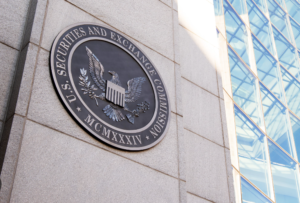$SPY $TLT $BTC
#Trump #Markets #Bonds #BondVigilantes #FederalReserve #Inflation #Stocks #Investors #Economy #InterestRates #Crypto #Growth
The bond vigilantes have indeed reawakened, spurred by the unexpected yet significant victory of former President Donald Trump. With his reemergence onto the political stage, the markets are reacting to a familiar surge of uncertainty. Traditional financial players — especially those in the fixed-income asset class — are quick to correlate political risk with upward pressure on yields and tightening financial conditions. As demonstrated in past political episodes, like the 2016 U.S. presidential election, markets seem to quickly adjust to Trump’s unpredictability. Bond yields have started to shift upward, driven by concerns about Trump’s potential policies and the impact on fiscal discipline. Investors will likely remain cautious, bracing for broader economic consequences if his policies lean even further into fiscal expansion and nationalist rhetoric.
Equities are facing mixed signals too. The stock market, primarily represented by indices like $SPY (S&P 500 ETF), has so far remained resilient, but it’s crucial to understand that the stock market’s behavior might be a lagging indicator of political and economic turbulence in the short to medium term. Rising bond yields could lead to tighter financial conditions, making it harder for businesses to borrow and expand, which would weigh on future corporate earnings. If Trump’s policies inflate public debt significantly, the $TLT (Treasury Bond ETF) may see further volatility as bond traders price in higher inflation expectations. So, while equity investors seem relaxed for now — perhaps betting on tax cuts or deregulation — bond investors are openly signaling trouble ahead.
The bond vigilantes, a term that refers to market players who aggressively sell bonds to push yields higher when they lose confidence in fiscal or monetary policy, have already started exercising their influence. Yields on U.S. Treasuries have jumped as investors anticipate higher government spending under a Trump presidency, potentially exacerbated by a looser Federal Reserve policy. Expectations of large fiscal deficits, increased borrowing, and inflationary pressures could force the Fed’s hand to raise rates faster than expected. Ironically, should the Fed act too aggressively to tamp down inflation, it could simultaneously stall any future economic expansion Trump’s policies aim to create, leading to harder choices for central banks worldwide. This back-and-forth between fiscal policy and Fed rate moves is placing additional pressure on fixed-income markets.
Meanwhile, cryptocurrency markets uniquely benefit from uncertainty in traditional assets. Many investors see Bitcoin ($BTC) or other digital currencies as a hedge in times of political risk and inflationary pressures. Though highly speculative, there’s a historical correlation between political turmoil and a rise in interest in decentralized assets like crypto. If bond vigilantes continue to drive up rates, and if inflation becomes a persistent issue under a Trump administration, more capital may flow into alternative stores of value. At the same time, excessive inflation or regulatory overreaches could challenge central banks, cutting their ability to pursue stable monetary policy strategies and potentially increasing the appeal of decentralized options.











Comments are closed.